Sorry to be the bearer of bad news, but we all saw this coming. Not long after the imposition of income tax and value-added tax (VAT) on condominium dues comes Revenue Memorandum Circular (RMC) No. 9-2013 dated January 30, 2013 which imposes income tax and VAT on homeowners’ association dues.
I would like to thank my friend, Atty. Dakila Napao, for the heads up on the release of RMC 9-2013.
Before anyone goes ballistic again, let me have a short discussion on the rationale for the imposition of taxes in general, and taxes on association dues in particular.
Rationale for the imposition of taxes
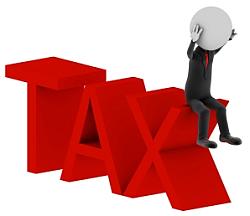
First, one of the basic premises in tax law is that “taxes are the lifeblood of the nation”. Taxation, being one of the major powers of a sovereign, should be respected. Being the price of a civilized society, as a general rule, the collection of taxes cannot be stopped.
Another major principle in tax is that “exemptions are construed strictissimi juris or strictly against the taxpayer.” On the flipside, if the tax on a particular transaction or person is not specifically spelled out, no tax is due.
In the case of associations, they are treated like a corporation for tax purposes. Thus, the income of a homeowners’ association from all sources should be taxable, in the absence of an exemption which is specifically granted by law.
In the past, homeowners’ associations were considered as mutual aid associations exempt from income tax pursuant to Section 30 (c) of the Tax Code. The amounts they collected were considered as held in trust by the association for the third-party suppliers, for example, the security agency which provides security services. The association was a mere pass-through entity and payments were coursed through it for practical purposes only.
Here comes RMC 9-2013
With RMC 9-2013, however, the BIR abandoned its previous position that homeowners’ associations are mutual aid associations exempt from income tax and held that the association dues collected by homeowners’ associations are payments for the beneficial services that they render.
Note: you may download a copy of RMC 9-2013 through the following link – BIR RMC No 9-2013 (PDF)
Thus, homeowners’ associations are subject to income tax and also to VAT (provided that the gross receipts exceed the P1,919,500.00 threshold within a year) or percentage tax.
How can homeowners’ association dues be exempt from income tax?
Unlike condominium associations, homeowners’ associations may be exempt from certain taxes provided the conditions under Republic Act (R.A.) No. 9904 or the Magna Carta for Homeowners and Homeowners’ Associations are complied with, namely:
1. The homeowners’ association must be a duly constituted “Association” as defined under Section 3(b) of RA 9904;
“Section 3(b). “Association” refers to the homeowners’ association which is a nonstick, nonprofit corporation registered with the Housing and Land Use Regulatory Board (HLURB), or one previously registered with the Home Insurance Guarantee Corporation (now Home Guaranty Corporation) or the Securities and Exchange Commission (SEC), organized by owners or purchasers of a lot in a subdivision/village or other residential real property located within the jurisdiction of the association; or awardees, usufructuaries, legal occupants and/or lessees of a housing unit and/or lot in a government socialized or economic housing or relocation project and other urban estates; or underprivileged and homeless citizens as defined under existing laws in the process of being accredited as usufructuaries or awardees of ownership rights under the Community Mortgage Program (CMP), Land Tenure Assistance Program (LTAP) and other similar programs in relation to a socialized housing project actually being Implemented by the national government or the LGU.”
2. The local government unit having jurisdiction over the homeowners’ association must issue a certification identifying the basic services being rendered by the homeowners’ association and therein stating its lack of resources to render such services notwithstanding its clear mandate under applicable laws, rules, and regulations. Provided further, that such services must fall within the purview of the “basic community services and facilities” which is defined under Section 3(d) of RA 9904 as those referring to services and facilities that redound to the benefit of all homeowners and from which, by reason of practicality, no homeowner may be excluded such as, but not limited to: security; street and vicinity lights; maintenance, repairs, and cleaning of streets; garbage collection and disposal; and other similar services and facilities; and
“Section 3(d). “Basic community services and facilities” refer to services and facilities that redound to the benefit of all homeowners and from which, by reason of practicality, no homeowner may be excluded such as, but not limited to: security; street and vicinity lights; maintenance, repairs and cleaning of streets; garbage collection and disposal; and other similar services and facilities.”
3. The homeowners’ association must present proof (i.e. financial statements) that the income and dues are used for the cleanliness, safety, security, and other basic services needed by the members, including the maintenance of the facilities of their respective subdivisions or villages.
What about implementation?
I’m sure there are many officers of homeowner’s associations who will be having questions on the implementation of this RMC. In Rule 8 of the Implementing Rules and Regulations (IRR) of RA 9904, which was approved on June 24, 2011, it is actually stated that the homeowners’ associations should get a Tax Identification Number (TIN) from the BIR, as well as official receipts and books.
If RMC 9-2013 was not issued, I probably would not have read RA 9904 and its IRR – so in this sense it may be considered as a blessing in disguise. I’m also sure a lot of officers of the different homeowners’ associations all over the Philippines will be reading RA 9904 and IRR in the next few days. Those who have questions may contact the Housing and Land Use Regulatory Board (HLURB) and check their website, http://hlurb.gov.ph/.
As a taxable entity, the homeowners’ associations will also need to file Expanded Withholding Tax (EWT) returns and Value-Added Tax (VAT) or Percentage Tax returns (whichever is applicable), plus the quarterly and annual income tax returns. It is advisable for the officers of homeowners’ associations to consult with the Revenue District Officer of the BIR Revenue District Office where the subdivisions and villages are located. It would be good for the homeowners’ associations to comply with the requirements of RA 9904 and its IRR and avail of the income tax exemption.
My thoughts
Personally, I think that it is possible that the gross receipts of many homeowners’ associations will not exceed the P1,919,500 VAT threshold so they will be subject to percentage taxes instead. Also, I think that big villages may have several homeowners’ associations, one association for let’s say a group of three streets like a sub-village, so there is a possibility that the VAT threshold may not be breached.
With the release of this RMC, I don’t know if someone will lobby in Congress to include homeowners’ associations in the associations exempt from income tax under Section 30 of the Tax Code (perhaps Bayan Muna could also pick up this cause), since the BIR has now held that homeowners’ associations are not considered as mutual aid associations exempt from income tax.
It may be argued that residential condominium associations may be considered as homeowners’ associations based on Section 3(b) of RA 9904 quoted earlier, which defines “Association” as
“xxx the homeowners’ association which is a nonstick, nonprofit corporation registered with the Housing and Land Use Regulatory Board (HLURB), or one previously registered with the Home Insurance Guarantee Corporation (now Home Guaranty Corporation) or the Securities and Exchange Commission (SEC), organized by owners or purchasers of a lot in a subdivision/village or other residential real property located within the jurisdiction of the association xxx.”
I noted, however, that Section 3(v) defines “Homeowner” as “an owner or purchaser of a lot in a subdivision/village” and Section 3(bb) defines “Subdivision/Village” as a tract or parcel of land partitioned into individual lots, with our without improvements thereon, primarily for residential purposes.” Thus, an amendment to the law and IRR to include residential condominium associations would clarify the issue. For your reference, you can also check RA 4726 and RA 7899 (Condominium Act).
What do you think?
We support freedom of expression so everyone is free to air their views in the comments section. Please just be polite so we can maintain a healthy and educational discussion.
~~~
To our success and financial freedom!
Cherry Vi M. Saldua-Castillo
Real Estate Broker, Lawyer, and CPA
PRC Real Estate Broker License No. 3187
PRC CPA License No. 0102054
Roll of Attorneys No. 55239
Text by Jay Castillo and Cherry Castillo. Copyright © 2013 and onwards All rights reserved.
As always, our standard site disclaimer applies
Full disclosure: Nothing to disclose.



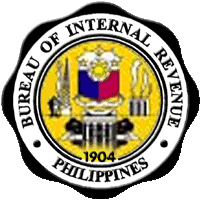

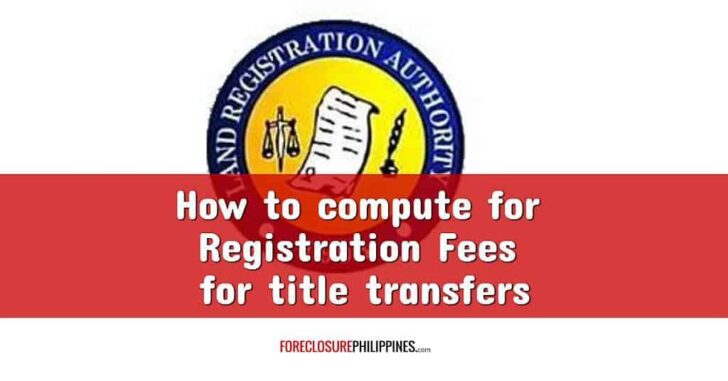

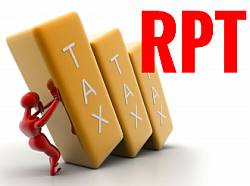
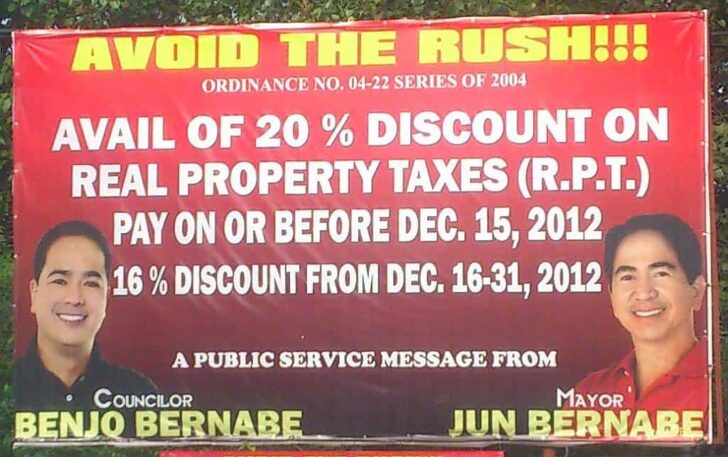
In my reading of jurisprudence, the Supreme Court had ruled in GR no. 228539 dated June 26, 2019 that income and dues collected by Homeowners Association are tax exempt (exempt from income tax and vat) because they are not considered as income per se but only held in trust. The ruling overruled BIR Memorandum Circular dated back 2013.
I am not a lawyer, but correct me if I am wrong for the guidance of everyone.
I think this imposition of requiring homeowners dues to pay tax is important if it can improve the collection of dues. The common problem is not all homeowner are not willing to pay despite the constant reminders of the board of directors. If the BIR will impose this it will be an additional burden to the officers.
Condominium association dues should not be subject to VAT because it is not considered an income. The money is collected for each homeowners to pay for the security, maintenance, cleanliness and payroll of the staff of the building. This should be considered non profit because nobody earns from these funds. I don’t see any difference with association dues for homeowners in village and condominium. Both are collecting association dues to pay for the maintenance of the whole building or village. The government should stop implementing this. This is so unfair to the owners of the unit in a building. Why will you pay for tax to something you don’t have any income?
This is double taxation. Needs to be repealed or remove. If i am
renting a house and on top of my rent I have to add VAT of 12% is
ridiculous. The Lessor needs to pay the income tax but I as a LESSEE
tenant should not be penalize for renting a house by paying an
additional 12% on top of the rent. In the same sense an HOA is not an
income but a residual money handed down to the association for the
maintenance of the facilities. It is not an income. Therefore is
should not be taxed. Saving account is the same way the only one that
is taxed is the interest income generated from it. There is no interest
income with the HOA so therefore it is illegal to charge VAT on it. If
they place the HOA on a fund then the interest on that fund is
taxable. But the PAYEE or the association member of the HOA should not
be tax because it is not an income. It’s like taxing the Savings
account while the money in the Savings account…plus taxing the
interest income in that savings account. This will lessen the Savings amount is it?
And this happens 12% of the balance every month it defeats the purpose of savings.
This makes Double taxation illegal.
Pingback: Our Top 10 Real Estate Investing Blog Posts For 2013
This law provides nothing of value to homeowners. Instead, we all have these requirements, requirements, requirements and control, and double taxation. Have you read the IRR of this law? it already spelled out in detail what ought to be the by-laws of a Homeowners Association. There are no more flexibilities or FREEDOM for the homeowners to have their own rules and policies, everything is dictated by this law! There is nothing to stipulate anymore in the By-Laws. The framers of this law be damned! This law puts all subdivisions and condominiums directly under the big brother Government’s control. Under this law, the “associations” or what is left of it, is actually an extension of HLURB!!
Hi Atty. Cherry,
I have a question regarding the charging of association dues on the property inside the subdivision. Can the Board of Directors of the homeowner’s association impose or charge association dues on unsold lots or H&L of the developer inside the subdivision already managed by the association? Hope you can give some insights on this issue.
Thank you and more power.
I reiterate that these taxes imposed on membership dues of residential homeowners in a private subdivisions are a FORM OF DOUBLE TAXATION, e.g., our salary income were already withheld monthly and automatically remitted to the BIR. The same salary we received monthly are the one and same source to pay homeowners’ monthly dues. It does not come from any entrepeneural business endeavors. Even so, its tax(es) must also have been already paid. And the purposes of homeowners dues are another from of personal expenditures, i.e, required expenses for personal security and care or hygene and sanitation and not for business endeavors. OUR BIR AND THE GOVERNMENT SHOULD KNOW ITS TRUE AND REAL DEFINITIONS. This is like giving and preparing TAXES for our DEATH. PATAY ka na me TAX pa.
The Alliance of Qc Homeonwers Assns., with 86 member subds., met recently regarding this matter and with all the confusion has asked BIR representative to DEFER the implementation of the same. We are currently coordinating with our LGU for the certification while members have been told to prepare for their audited financial reports and hlurb affiliation. We fought very hard to have RA 9904 and worked on the same for almost tens years. We belong to the framers and technical working group of the magnacarta and we made sure that we got the exemption reason why it was included in the law. While we are working to have the RMC repealed or at the very least deferred, we enjoin all HOAs to join hands and consolidate our efforts regarding this issue. Politically, I think we should all let our leaders know of our disgust. Is is election time and this will greatly affect the votes for the Liberal Party since Kim Henares serves Pnoy who is Liberal Head.
All HOA should keep the noise level ! If the politicians see us as a voting block then I think they would have to reconsider. This can be done by sharing your sentiments in Social Media and Text Messages.
NO TO TAXATION ON HOAs! or else NO VOTE 4 TEAM PNOY!
see our facebook page for details aqchai
Thank you Sir! I just love it when we have framers commenting here, they really know the intent of the law. May we ask for the link to your facebook page sir?
Best regards,
Cherry
Aqchai Qc
Alliance of Quezon City Homeowner’s Assns. Inc.
type Aqchai Qc sa facebook to see…….
Alliance of Quezon City Homeowner’s Assns. Inc.
Thank you sir Jordan! I found it and here is a direct link: https://www.facebook.com/aqchai.qc?sid=0.5558751588687301
Hi Sir Jordan. I feel lucky to know a person who had a participation in framing RA 9904. I had a terrible experience in our HOA and with our developer and from researching, I have found out that many homeowners are oppressed and extorted by the board and officers of their HOA. This is rampant with the emergence of various residential developments. What is frustrating is that, the objectives and intentions of RA 9904 is easily ignored. I hope different homeowners from all over the country could collaborate and be united for the noble act of protecting its interest and taking an active part in making better quality of life in our very own nation. When and how can we start this collaboration and unity?
The State is entitled to collect taxes but it should temper its taxing power with equity and fairness. For the BIR to suddenly abandon a long-held doctrine which exempted condo corporations from VAT is like saying — all the past Commissioners did not know what they were doing! The explanation about the new rule is very hazy. The new rule disregards a fundamental definition of VAT that is found in Section 105 of the National Internal Revenue Code which reads — ” Any person who, in the course of trade or business, ….shall be subject to the..VAT.. ”
My humble opinion is thus: If the association dues are collected directly by the condo corporation, it should be exempt from VAT because the condo corp is not engaged in trade or business. But if, in some cases, the dues are collected by a contracted third-party Property Manager, then the latter should pay VAT because they render the service of managing the condo as part of their trade or business.
This is an example of a pure and simple DOUBLE TAXATION. Ask yourselves WHY?
I second the motion DARREN NOWAY’s professional views. Our government is REALLY and EVIDENTLY pushing down the more on our NEEDY and HELPLESS Pilipino people ON TAXES. Bakit hindi makita, masingil at mapakulong ng BIR ‘yung mga naglalakihang kompanya na malalaki din ang mga ‘palusot’ sa pagbabayad ng kanilang mga tax.
The history of the world is littered with good taxes and bad taxes, often bad governments seek to raise money by way of bad taxes…this is considered to be tax gouging, taxing because a Govt can politically get away with it and not hurt its chances at the next election.
Aquino has made a mistake with these taxes, just as a middle class emerges he is seen to be hitting it on the head, punishing it, taxing it…like its a crime to live in a condo or an estate….associations on the whole are NOT corporations, not looking to make a profit and should be encouraged not punished.
This is a politically incompetent policy, and IF the economy falters he and his party will pay dearly.
Hi Atty. Cherry,
We are a bit confused with the RMC 65-2012 and RMC 9-2013. Actually I think eve the BIR RDO where we belong to is confused.
Btw we belong to a small residential condominium. And though we are registered as management corporation we are basically like a home owners association with no other activities but to maintain our common areas. We just applied for a new COR certificate of registration but we applied for still non vat but with percentage tax. This is because our estimated annual income falls within the 1,991.500 threshold so we are exempted from vat and instead we are qualified to pay for percentage tax this is what we heard during a seminar conducted by BIR. Which is which? Even BIR personnel is too confused with this matter. That we can’t get a clear answer. Now here is another problem. We are running out of official receipts and we need to request for it ASAP. We got hold of the new COR but still hesitant to request to print it because now we are not sure if we are really still qualified to be a non vat or we need to update it to Vat.
Thank you and more power.
Thanks po for this informative update. I just subscribed to not miss timely information from your great site!
Hi Atty Cherry!
I am glad that there are responsible professionals like you who share timely insights on this matter. However, i am a bit saddened when some people outrightly wrote in a broadsheet that BIR Softens its stance on the tax on Condominium Dues which instead of helping, creates more confusion on the 2 issuances; RMC 65-2012 and RMC 9-2013. Issues of February 5 and 7.
Thank you again for sharing your thoughts.
More power and Thank you!
Robert
Hello Jay,
I’m a big fan of your blog and a religious follower of Robert Kiyosaki’s books. I’m a Filipino citizen so don’t worry about it…
I’ve been reading from his books that in order to take advantages of tax breaks and benefits it’s better to put my business up as a business entity like an L.L.C or S-Corporation.
My question is how do you deal with your properties? Can we use these tricks of Robert Kiyosaki here in the Philippines? I’m sure you don’t own them under your name like in a Sole Proprietorship or Partnership. Please do share with us which business form you use and how you did it.
You see I don’t want to set up a corporation because it’s just my brother and I who will be members and I don’t want a Partnership because that would give us no personal liability protection. So what is the best?
Thank you so much for all the knowledge that you continue to share with us…
I’m glad I paid for our HOA dues for the entire year (2013) to get 2 free stickers for our car(s) plus 1 month free as early payment discount. By accident, we won’t be affected by any increase in HOA dues (if any) until after 2013.
Off-topic–
Sir Jay, are you referring to Dakila Elteen Napao? so nice to know a “common” friend here, kung siya nga , hehe..
Hi Sunshine,
Yes, he is my friend, a colleague at my former office. Small world!
Best regards,
Cherry
oooppppsss… sorry Ms Cherry, sa iyo pala ito, hahaha!
He’s the son of our High School Principal and he might not remember me anymore coz we were in 1st year while he’s in 4th year that time but our class were their “baby” 🙂
Just reminiscing hahaha!
hello miss cherry,
Thank you for this insightfull information.
Just want to clarify about the exception under RA9904, as stated in the RMC:
“2. The local government unit having jurisdiction over the homeowners’ association must issue a certification identifying the basic services being rendered by the homeowners’ association and therein stating its lack of resources to render such services notwithstanding its clear mandate under applicable laws, rules, and regulations.
….”
Would this mean that each HOA must be issued with INDIVIDUAL Certification from the LGU?
Hi Eugene,
Yes, I believe so. Exemptions are strictly construed against the taxpayer.
Best regards,
Cherry
Thanks miss Cherry.
What does the phrase “Local government unit having jurisdiction over the homeowners’ association” exactly mean? would it mean the city/municipal level or barangay level? It would be easier I think to secure certification from the barangay than the city hall.
I really want to know some details for the reason that our HOA just registered with BIR this week and our application for Non-VAT registration had been denied and instead we were issued with COR with “Tax Type: Income Tax”. So I think our HOA was first one that was affected by this RMC.
Good to know of new laws for homeowners, although these things on additional taxes for the poor ARE REAL burden. Why not pass the taxes on the OWNER-DEVELOPERS? They are the ones who are truly benefiting from homeowners actually.
Good Day! I agree with you sir jun! Although RA 9904 and PD 957 are laws that was intended to protect homeowners, still they are exploited and abused because of the lack of dedication by the hlurb to consistently and fairly implement this law. It was last June 2011 when our homeowners association was registered without undergoing the necessary procedures prescribed by RA 9904. We are homeowners of townhouses in a small subdivision in Taytay, Rizal. I discovered a lot of blunders and I believed that it was all by the manipulation of the developer. Without a general assembly meeting, a by-laws was constructed and the most notable blunders on that are the: 1. membership dues of P 1000 and 2. monthly dues of 100. However, the officers implemeted immediately a P 200 monthly dues. The board and officers refused to show the by-laws, minutes of the meetings and articles of incorporation. It was only last may 2014 when I got the chance to have certified true copies of all those docs and the financial reports that was just really a scraped. The cash balance was just around P 36,000, a material discrepancy compared to around P 92,000 on the cash report that was distributed by the officers to the homeowners. The officers did not ever made any reporting of the financial activities to the homeowners despite of repeated demands during the meeting. I was really frustrated how come the hlurb staff replied that they don’t check financial reports filed in their office. It was clear in the IRR of RA 9904 that ANNUAL financial reports must be filed within 90 days after the close of the fiscal year but our financial report for period covering July 2011-Dec 2012 was filed on July 2013, (unsigned even by the auditor of the association and not audited by independent cpa or accountant) a clear violation of the rules! But when I paid to the Cashier for the fees of researching and securing certified true copies, a lady (a CMP homeowner) was complaining that she came back because previously the staff refused to accept their financial reports because it was not audited by an independent cpa. The control of our subdivision is still with the developer but the Officers of the association collects dues because it was for the payments of street lights, guards and maintenance personnel. Is it not clear that the developer are prohibited under PD 957 Sec 27, to collect fees to finance these? But the developer can easily circumvent the law by organizing homeowners association as their conduit. The only job of the officers were to demand payment from the members but they never show the documents pertaining to the collections, maybe because they themselves don’t pay the dues. They also don’t follow the rules on disbursements. There were no proof not to believe that the developer generate illicit income from the homeowners association when such was supposedly independent from the control of the developer and should loyally serve the interest of the homeowners. I hope through this forum, this situation will be given attention. I think it is unfair to impose taxes on poor individuals when the unscrupulous developers can evade taxes. In the deed of absolute sale the price was materially understated. The developer called my husband in his office that he needs to sign some important docs, and they were in a hurry, they did not gave him the chance to have enough time to review the docs. My husband who was a first time buyer immediately signed the docs. It was after 2 yrs, when we got a copy from the bank because the developer did not gave us a copy. I was surprised that the price was materially understated and the address of the developer was fictitious. Another thing, is it legal for the developer to prevent connection of individual water meter of the Manila Water to finished and occupied residential units, install their own submeters impose high rates and collect payments? Neighboring subdivision and informal settlers enjoys direct services from the water concessionaire, how come we don’t. The developer impose a very expensive rate: P 40-45/ cu meter. Before moving-in, the homeowners paid additional fees called move-in fee (P 30,000-40,000) for the installation of water and electricity. What the developer did was, install a submeter in the individual residential units, connected to the “Mother Meter” of the Manila water hidden near the gate. Isn’t it though this, the developer can easily claim expenses of water consumption either or both as cost of construction or maintenance since it was under their account? Isn’t it through this sheme, the developer gain undeclared and illegal income? Because the residents were clamoring for the individual direct meter from the concessionaire the Officers and the developer were imposing another fees around P 27,000 to the homeowners.